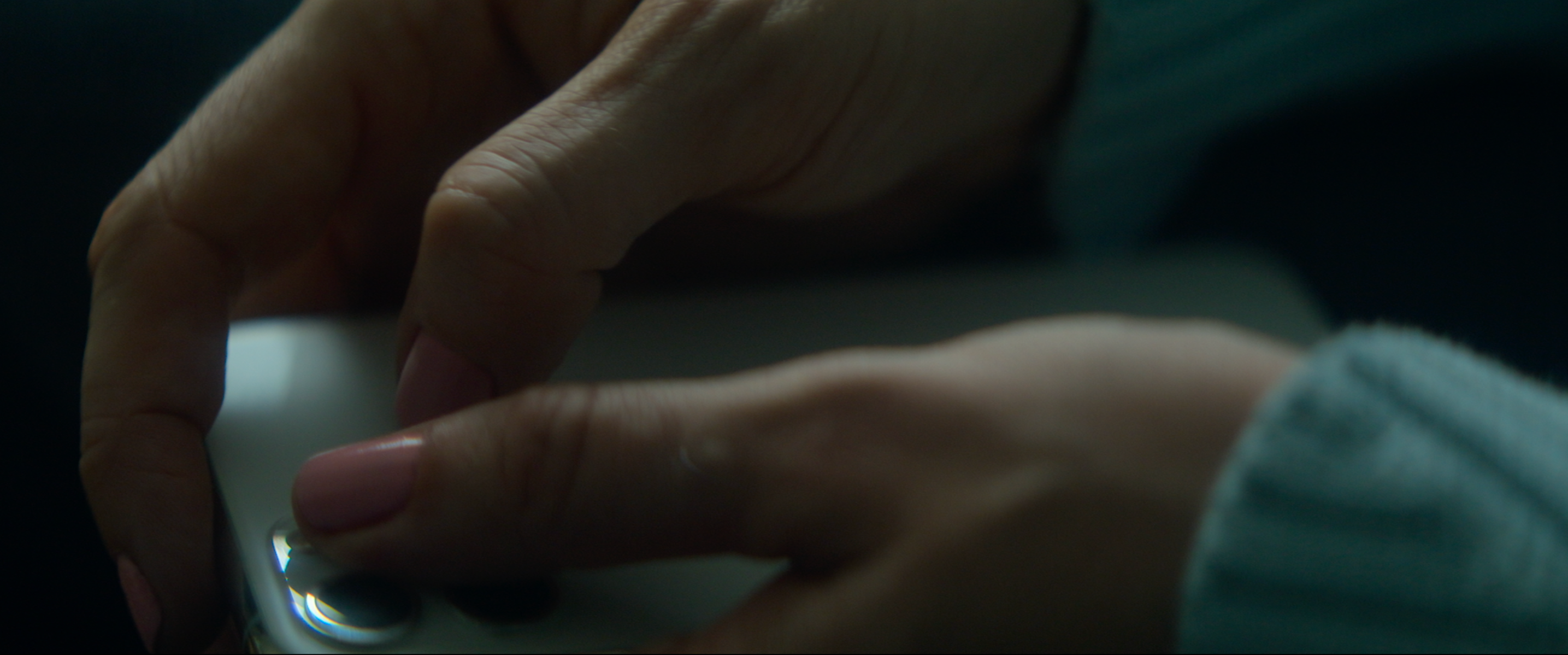
We’re a trusting bunch, as a species. Especially when it comes to someone offering what we think we deserve. Apparently, we’re also all primed by evolutionary biology to be taken in, or lured, by success. That might not make you rush to hand over your house keys to someone who presents as an ultra-high net worth individual, but it does go some way towards explaining why so many of us are duped by perfect people (who aren’t actually perfect) or fall for the opportunity that’s too good to be true (it isn’t).
Sadly fraudsters, con-artists, fakers and cheats are a fact of modern life; in fact, they’re common enough to fill a plethora of TV shows airing at the moment, referred to as “scammin’ season,” by Vulture’s Jackson McHenry.
“TV and streaming networks are putting out competing series based on real-life people who talked their way into the wallets of the powerful… and eventually got caught,” says McHenry, introducing a rundown of the scummiest villains, schemers and scammers featured in current and forthcoming TV shows, who run everything from real-estate empires to sham blood-testing technology.

McHenry’s “scumbag” chart is topped by Joe Exotic, nicknamed the “Tiger King,” and the subject of a Netflix series of the same name. Here, the decade-long feud between Exotic and Big Cat Rescue founder Carole Baskin is explored in Joe vs. Carole (Peacock), with John Cameron Mitchell playing Exotic.
Another figure in McHenry’s sights is Uber co-founder Travis Kalanick, played by Joseph Gordon-Levitt, and the focus of Super Pumped (Showtime). “The list of scandals under his leadership is long and public,” claims McHenry.
“Super Pumped treads the fine line between bro-friendly entertainment and bro-critical satire, racking up a major debt to Adam McKay (The Big Short) and Aaron Sorkin (The Social Network),” says Judy Berman in Time.
“For each docudrama with something to say, there are several more that function as audiovisual Wikipedia pages, overflowing with names, dates, and statistics but light on narrative,” says Berman, pointing out Showtime’s The Comey Rule, Hulu’s Dopesick, Netflix’s The Serpent, and Bravo’s Dirty John. “Others, like Pam & Tommy, bungle their attempts at socially conscious revisionism so badly that after six or eight episodes, they abruptly end without arriving at a meaningful conclusion. And the few that aren’t indifferent to style can be astoundingly derivative.”
READ MORE: From Super Pumped to Inventing Anna, Docudramas Are Taking Over TV. Here’s Why That’s Worrisome (Time)

More “scummy” behavior is depicted in WeCrashed (AppleTV+), which recounts the story of Adam and Rebekah Neumann, played by Jared Leto and Anne Hathaway, who co-founded the co-working space company WeWork.
“Riding high on big talk and big spending, WeWork’s valuation rose to $47 billion in 2019. It became the biggest private office tenant in Manhattan,” says McHenry, but sexual assault claims and stories of Neumann’s mismanagement brought the edifice crashing down.
Created by Drew Crevello and Lee Eisenberg, WeCrashed’s main hook is that “it’s genuinely funny,” Naomi Fry writes in The New Yorker. The show “seemingly wants to align itself with the golden age of television marked by the charismatic-asshole DNA of such antiheroes as Tony Soprano, Walter White, and Don Draper,” Fry adds. “Lithe, long-haired, and occasionally shirtless, Leto certainly looks the part of a rogue.
“Meanwhile, Hathaway presents Rebekah, who marries Neumann, as a husky-voiced font of New Age platitudes. ‘Can you feel all that love and energy that I’m sending to you?’ she asks her husband during a call, as she presses a smartphone to her forehead, her eyes closed beatifically.”
READ MORE: The Comforts of “WeCrashed” and the Modern Grifter Series (The New Yorker)
The Daily Beast’s Kevin Fallon describes Adam and Rebekah as “absolute weirdos.”
“They are totally bonkers,” he adds. “If there’s a selling point to WeCrashed, it’s Leto and Hathaway having a blast getting to be so diabolically peculiar. Well, at least Hathaway is having fun. Leto is performing whatever intense facsimile of enjoyment that he is capable of.
“They get to mess around with accents and voices; Neumann is Israeli-American, a dialect that Leto approximates far more convincingly than his Waluigi impersonation in House of Gucci, while Hathaway lowers her voice to that woo-woo yogi register that wellness enthusiasts love to employ,” observes Fallon.
“Neumann was a striking presence,” he adds. “He mystified people with his fawning speeches, typically served as a finely chopped buzzword salad that was ultimately meaningless. Rebekah saw opportunity in the way people admired him and encouraged not just the expansion of WeWork to dorm living and private schools for children, but into a spiritual and enlightenment space in which they could both share the spotlight.
“Their enigmatic love story is the backbone of WeCrashed,” Fallon continues. “It’s when the series diverges from that and goes back to the whole business aspect of things that things revert to feeling uninspired.”
READ MORE: It Is Time to Do a Scam (The Daily Beast)

Building a Fiction
On the “scammy” side, McHenry’s ire is most reserved for Elizabeth Holmes, played by Amanda Seyfried in The Dropout (Hulu). “In 2003, when she was a 19-year-old student at Stanford, Holmes founded Theranos, a company she swore would revolutionize the medical industry by running tests using only a few drops of blood,” says Mc Henry. “In 2014, she was named the youngest self-made woman billionaire, worth an estimated $4.5 billion. The smoking gun: her tests never consistently worked, and she hid that truth from nearly everyone.”
The Guardian’s Adrian Horton views Seyfried’s portrayal of Holmes as a “stupendous mix of reckless naivety, genuine greed, astounding compartmentalization and monstrous self-delusion.”

Horton, “struggling with based-on-a-true-story fatigue” from watching some of the other shows mentioned here, is fascinated by how people around Holmes react to her scam, “the justifications one makes to keep going or trusting, the struggle to square bad behavior with the better person they thought they knew,” to the point of going along with her when she apparently massages the results of “a trial” to terminal cancer patients.
“It’s possible to believe, watching this scene, that Holmes was truly convinced the trial was fine as long as Theranos got the tech eventually,” says Horton. “It’s also possible that nothing mattered nearly as much as the appearance of success, as much as the cancer patient taking her hand in gratitude and admiration. It’s possibly both, but it also doesn’t matter; the true horror of the scene, the stakes of The Dropout, is that patient — a person’s health used as a game by Holmes, the real victim of all that investment tossed around like play money.”
READ MORE: How Theranos drama The Dropout gets scam and tech culture right (The Guardian)

Kathryn VanArendonk, over at Vulture, asks, “What do we want in a show about a scam?” noting that many of the season’s titles have left viewers wanting. “All of them seem like such easy targets to hit,” she writes. “ The trouble is that it’s also easy to be sloppy about it, to turn the prime scammer target into something muddled and unsatisfying. Too often, it feels like we’re being insufficiently scammed.”
As it turns out, The Dropout has just what she’s been looking for, VanArendonk says. “None of it would work without the lead performance by Amanda Seyfried, who somehow conveys all of Holmes’s eccentricities and tics without begging for laughs or denying their absurdity.”
A key ingredient to any successful scam show is a galvanizing central figure. “But a great scam show needs an element of portraiture to illuminate that principal scammer,” VanArendonk insists. “If they’re just monsters, or if they’re given flashbacks to backfill motivation and shore up their current predicament, it all fits together too neatly. (There is no more boring form of character development than a straight, bold line drawn from one childhood event to an adult personality.) The Dropout succeeds because of Seyfried’s work as Holmes, but it’s also a messier portrait of Holmes’s youth, one that leads to a much more nuanced and multifaceted image of her by the time Theranos is in full swing.”
READ MORE: The Dropout Hits the Scammer Sweet Spot (Vulture)

Another scammy show for McHenry is Inventing Anna (Netflix). This is the story of Anna Sorokin, a.k.a. Anna Delvey, played by Julia Garner. “Claiming to be a socialite with a trust fund tied up in Europe, [Sorokin] convinced New York’s elite to foot her bills in the guise of developing a club she called the Anna Delvey Foundation, bouncing checks and faking wire transfers along the way,” McHenry writes. “Sorokin was convicted of theft of services and stealing more than $200,000 in April 2019 and sentenced to four-to-12 years in prison.”
READ MORE: The Grifters Have Come for Your TV; It’s scammin’ season (Vulture)
Showrunner, producer and writer Shonda Rhimes (Grey’s Anatomy and Bridgerton) is responsible for Inventing Anna as part of her production deal with Netflix. “Rhimes has a good eye for a story and even more skill at storytelling so naturally there are high hopes for Inventing Anna,” says Lisa Respers France in CNN’s Pop Life Chronicles.
READ MORE: ‘Inventing Anna’ is Shonda Rhimes’ drama of a grifter who fleeced the New York party elite (CNN)

“On the surface, it seems The Dropout should have a lot in common with Shonda Rhimes’ take on the ‘Soho grifter’ Anna Delvey,” Laura Bradley writes in The Daily Beast. “Both focus on white women whose confidence, energy, and (most importantly) knack for lying vaulted them to the top echelons of society — and both allow viewers to revel as their respective houses of cards come crashing down. But one key difference sets these scammy shows apart: while The Dropout imagines the human story behind the viral news saga, Inventing Anna gets lost in the legend.”
Bradley points out “the irony that while both of these women were unqualified for the spaces they sought to enter — Delvey wanted to build her own foundation with zero business experience, and Holmes saw no issue with founding her own company as a college dropout also with zero business experience — it only serves to underscore the incompetence of the supposed [all male] gatekeepers.”
READ MORE: How Elizabeth Holmes Saga ‘The Dropout’ Avoids ‘Inventing Anna’s’ Silly Mistakes (The Daily Beast)

The storytelling format of the two shows is a complete contrast, in the opinion of George Tsavelis at Comic Book Resources. “Inventing Anna teases the audience that there is something conspicuous about Anna Delvey right away. The show starts with her arrest and more information gets unveiled using flashbacks. Even though viewers don’t have all the details from the beginning, it quickly becomes evident that Anna is not who she says she is,” he says.
“Meanwhile, The Dropout initially presents Holmes as the classically ambitious and very intelligent hero, who starts to pursue her dreams based on a legitimate idea that she truly believes in. She doesn’t start out with the intention to deceive anyone, but through a series of wrong choices she slowly deviates from her initially altruistic goal. The two characters’ journeys are indeed the exact opposite of each other. Anna starts out as a liar and slowly tries to become a legitimate businesswoman, while Elizabeth begins legitimately but ends up a becoming a fraud.”
READ MORE: The Dropout vs. Inventing Anna: Which Is Better? (Comic Book Resources)

While admitting it to be a “generally engaging” take on the story of a “conniving con artist,” Adrian Hennigan, writing for Haaretz, isn’t impressed with the Sorokin saga.
“Inventing Anna is a terrific six-part series. The only problem is that the actual show is nine episodes and suffering some real mid-season bloat — most notably an interlude in Morocco that could have been told in 10 minutes but stretches to over an hour,” he says. “Throughout, the show walks a precarious line between fascinating character study and the soapiest of soap operas, milking real-life events to an extent even an industrialized dairy might deem excessive.”

Then there’s the Netflix true crime documentary “everyone’s talking about”: The Tinder Swindler, directed by Felicity Morris.
“[This is] about Israeli sleazebag Shimon Hayut, whose “Simon Leviev” nom de guerre stole an estimated $10 million from victims worldwide to fund his jet-setting lifestyle,” says Hennigan. “All this despite him being decidedly more Prince Smarming than Prince Charming.
“Felicity Morris has made a documentary whose primary source is WhatsApp: text messages, emojis, audio files and videos sent by Hayut to his victims, and vice versa, in a Ponzi scheme that is simultaneously as old as time and so modern-day: man preys on string of vulnerable women, with each victim’s money setting up the next in the chain,” Hennigan continues. “It’s easy to see why Netflix is already exploring the possibility of dramatizing [it] and turning it into a scripted movie — because there’s a lot more ground to cover in this particular tale.”

READ MORE: ‘Inventing Anna’ and ‘The Tinder Swindler’ Explore the Art of the Con (Haaretz)
“How is it that so many people could have been gullible enough to buy the fantastical stories spun by Sorokin and Leviev?” social psychologist Vanessa Bohns asks in The Conversation.
“Why, even when “the red flags were everywhere“ — as one of Sorokin’s marks put it — did people continue to believe these grifters, spend their time with them and agree to lend them money?”
In Bohns’ view, these stories are examples of “bad actors exploiting the social processes people rely on every day for efficient and effective human communication and cooperation.”

“Humans are social creatures and trusting one another is baked into our DNA. As psychologist David Dunning and his colleagues have pointed out, without trust it is hard to imagine endeavors like Airbnb, car shares or a working democracy having any success,” she adds. “Without trust, there is no cooperation; without assuming others are telling the truth, there is no communication; and without accepting people for what they present to the world, there is no foundation on which to build a relationship.”
“Research shows that people tend to default to trusting others over distrusting them, believing them over doubting them and going along with someone’s self-presentation rather than embarrassing them by calling them out,” Bohns observes. “As much as you’d like to believe that if you were in the shoes of Sorokin’s and Leviev’s targets you would have been emboldened to blow the lid off the whole charade, chances are that rather than make things uncomfortable for everyone, you’d simply go along with it.”
READ MORE: How scammers like Anna Delvey and the Tinder Swindler exploit a core feature of human nature (The Conversation)
Halo Effect
It’s worse when the fraudster appears affluent. Samantha Selinger-Morris, writing in the Sydney Morning Herald, quotes Professor Joe Forgas, a social psychologist at UNSW who says: “all humans are primed by hundreds of thousands of years of evolution to not only trust people, but to especially think well of those who present as being exceptionally wealthy.”
“The way the human processing system works, we tend to assume that positive qualities go together,” says Forgas. “If somebody’s really wealthy, we are probably more inclined to believe they are also going to be more trustworthy or reliable or wise, or worth listening to.”

This is known as the halo effect in behavioral psychology. Selinger-Morris says it’s one of hundreds of default mental shortcuts that help keep our brains from becoming overwhelmed by decision-making, and draws on the wisdom of Dr Meg Elkins, a behavioral and cultural economist at RMIT’s Behavioral Business Lab. “We have these implicit markings on us, or actions, from birth, for the way we respond to people who are successful and leaders. We can’t help but have that [positive] bias,” says Elkins.
According to Elkins, pretend lives like Sorokin are convincing partly because of “social proof”: we often look to how others are behaving and take our cues from them.
“There’s this lovely quote by [playwright] George Bernard Shaw, ‘The difference between a lady and a flower girl is not the way she behaves, but how she’s treated,’” says Elkins. “So with [Sorokin], she’ll give you clues that this [other] person has accepted her.”
READ MORE: Think you can’t be scammed? Think again (Sydney Morning Herald)
And yet people scorn the victims for being naïve. “As quickly as The Tinder Swindler and Inventing Anna soared to the top of the Netflix charts came the outpouring of criticism for those who fell for their schemes,” says Brooke Theis in Harper’s Bazaar. “Viewers seemed to feel a sense of superiority, schadenfreude even, at the scenes — after all, we would never be so gullible… But that assumption is easily countered by the estimated £2.3 billion lost last year to scammers in the UK alone. Furthermore, during the pandemic, the number of romance cons doubled, with the average victim losing £6,100. Many of us have in fact fallen for a scam in the past and felt that same cold wash of panic when we discovered we had been duped.”
“Cons are really all about our belief that things for us are going to be better,” psychologist and bestselling author of The Confidence Game Maria Konnikova tells Theis. “We all know that if it seems too good to be true, it is. But when it comes to ourselves, we think, ‘I deserve love’ or ‘I deserve this great opportunity to be introduced into this wonderful segment of society’. So we don’t see it as ‘too good to be true’; we see as ‘what I actually deserve.’ ”
Don’t forget that the people in these shows are “elegant artists of manipulation,” says Theis. “They are selling a dream that we all long for — a lifestyle of luxury we are conditioned to aspire to, of expensive clothes, holidays and dinners, and of fairy-tale romance, in the case of The Tinder Swindler. Being close to people like them offers a gateway into another world — and our yearning puts us in their power.”
READ MORE: Why are we so unsympathetic to victims of relationship scams? (Harper’s Bazaar)

Surplus of Scammers
The backlash has started, however. “These shows offer an unsympathetic perspective. Their scammers are petty and selfish and cruel and greedy and manipulative and humiliatingly unselfconscious,” says Isle McElroy in Thrillist.
“Time and again, the scammers come off as flat portraits of greed rather than fully fleshed human beings,” she adds. “Even if these portraits are accurate — based on the essays and podcasts that inspired the shows — here is a sense of missed opportunity. The reported pieces were hemmed in by word count limits and journalistic integrity; the dramatization, however, is a chance to explore the psychology that gives rise to a scammer, even a mundane one. But every attempt to uncover the psychological trauma that may give rise to a grifter is itself a narrative scam, a feint toward empathy that eventually huddles safely beneath the narrative we already know: the scammer is power hungry and mean.
“Given the chance to create exaggerated portraits of bravado and self-delusion — to do what journalism and podcasts cannot — these shows instead act as hour-long finger wags,” McElroy adds.
READ MORE: The New Crop of Shows About Grifters Is One Big Scam (Thrillist)
Comedy Queens Trump Scammy Sisters
By Michael Burns
Spare a thought for The Atlantic’s Shirley Li, having to watch “series after series about women who built enviable careers on a myth only to fail and fleece their followers in the process.” The Dropout, Inventing Anna, and WeCrashed have all streamed their way past Li’s critical gaze.
“Watching them back-to-back — as I have, given their debuts within weeks of one another — gave me whiplash,” she adds. “Yet as entertaining as it may be to watch scammers get their comeuppance, these shows present a narrow perspective, focusing on relatively wealthy white women who exploit gender inequity for their own gain.”
Thankfully for Li, and the rest of us, a panacea of warmth and sincerity to soothe scam-ravaged souls is available in the form of two new half-hour comedies.
“HBO Max’s Minx, about the founding of a Playgirl-like porn magazine for women, and ABC’s Abbott Elementary, about the staff at an underfunded public school in Philadelphia, depict the trials of being a woman who’s driven, idealistic, and empowered.
“Both emphasize the satisfaction that can come with cooperation and negotiation, not just the thrill of winning over a room of naysayers,” she continues. “Both consider the sexism and misogyny that can sway a woman’s principles, without turning such challenges into the only obstacles their leads face. The two series offer reminders that female leadership isn’t just about having enough conviction to win over skeptics; it’s also about women confronting where their distrust comes from while looking out for one another and for solutions that lead to meaningful change.”
The scammer shows may “come packed with glitzy storytelling and outrageous performances,” but Li says they idolize the wrongdoers, “the ones who broke the glass ceiling by turning to deceit.”
In contrast, she says the comedies propose that success doesn’t come from insisting upon one’s ideas and abilities at all costs.
“With Minx and Abbott Elementary, women who hustle without becoming hustlers themselves are getting a chance to redefine what achievement means — even if that work can’t be distilled into an inspirational sound bite.”
READ MORE: The Comedies That Understand What Peak Scammer TV Does Not (The Atlantic)
In common with McElroy, Kate Knibbs at Wired feels the scamster story has run its course; in effect, the bubble has burst.
“This enthusiastic embrace of grifter tales has resulted in an oversaturation that makes it difficult for new entries to the ‘Scam Show Canon’ to avoid a sense of staleness,” she writes.
Yet, there’s even more to come: “Netflix is releasing a documentary about a scamming vegan called Bad Vegan later this month,” Knibbs says.

“When a dorky rapping entrepreneur named Heather Morgan was arrested with her boyfriend earlier this year in connection with laundering billions of dollars in bitcoin, [The Hollywood Reporter] announced three separate projects within a week of the instantly notorious Crypto Couple’s arrest,” she adds. “As the crypto market continues its expansion, there will no doubt be many more outrageous stories about blockchain con artists scooped up and dumped into the crime-news-to-scam-TV pipeline.”




